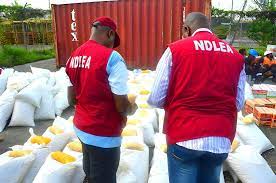Nigeria faces a significant challenge with drug abuse, a new report by the National Bureau of Statistics has said.
Consequently, the chairman of the National Drug Law Enforcement Agency (NDLEA), Brig-General Muhammad Buba Marwa, has called for urgent action.
General Marwa made the call in Gombe while speaking during a stakeholders’ meeting titled “Substance Abuse: Northern Governors’ Wives’ Call for Action.”
General Marwa, who was represented by Mr. Shadrach Haruna, the agency’s secretary, stated that the 2018 National Drug Use Survey estimated that a staggering 14.3 million Nigerians, aged 15–64, were abusing psychoactive substances, excluding tobacco and alcohol.
“This translates to roughly one in seven Nigerians within this age group struggling with drug misuse. The report also exposed a concerning regional disparity.
“While the national average for annual drug use prevalence sits at 14.4%, the North-east zone experiences a significantly higher rate of 13.6%, exceeding two million users.
“Gombe state alone has a particularly high prevalence of 21%, surpassing even the national average,” Marwa stated.
In response to this crisis, Marwa called for a treatment-centred approach, prioritising rehabilitation facilities.
He stated the importance of these centres, adding that they embody “the collective resolve to confront the scourge of addiction with compassion and humanity.”
Rehabilitation centres, Marwa said, “offer individuals with drug use disorders a lifeline. They provide not only treatment for physical ailments but also crucial support for emotional and psychological well-being through counseling, therapy, and vocational training.
“The national survey revealed a troubling statistic, one in five drug users in Nigeria suffers from a drug use disorder. However, a major obstacle exists, a significant lack of readily available and accessible drug treatment services across the country,” Marwa said.
To address this gap, he advocated for the prioritisation of treatment centres, including the establishment of specialised facilities catering for women’s specific needs.




